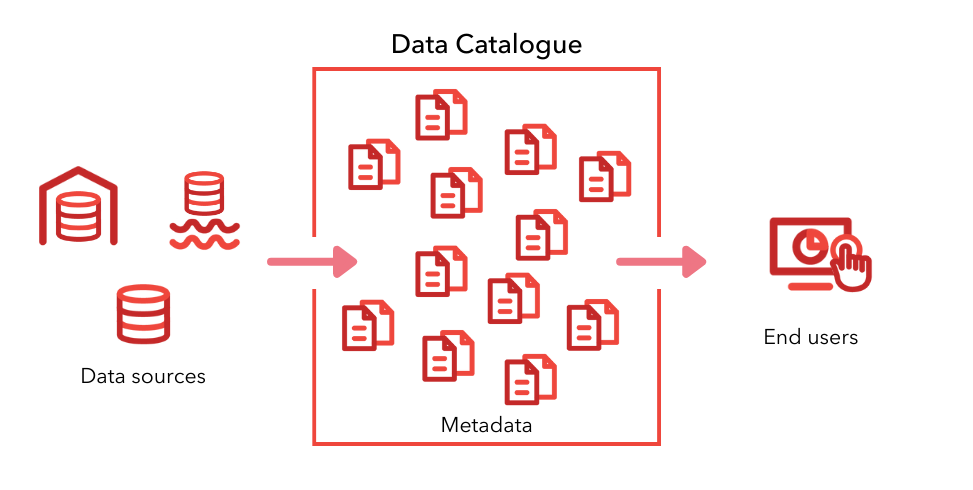Rise
of the data catalogues

There has been a surge in demand for data & business glossaries. And there’s a perfectly logical reason for that. More than ever, modern business leaders understand that getting valuable insights from raw data and making them available for everyone who can benefit from them is key to long-term survival. However, the barrage of data and data sources makes it impossible for the IT department to handle everything alone. These tools effectively bridge the gap between business and IT by allowing non-technical business users to work with data.
For example, a sales manager needs to report on turnover to the CEO. A data catalogue can tell them where to find this figure and its derivates. It will also give them information such as the exact term definition, KPI calculations, the sources, who this metric is relevant for, and why. This will clear up a lot of misunderstandings and faulty assumptions.
In the same way, data catalogues also help with onboarding. New hires can easily find all the relevant business definitions, data, dashboards and reports they need through the glossary. With every piece of data having an owner or steward, new joiners will know who to look for in case of questions.




